Brussels – Croatia is preparing for its first super-election year appointment amid controversy and uncertainty on the eve of the vote. On Wednesday (April 17), Croatian voters will return to early rounds for the renewal of the Sabor (the national parliament) less than two months before the EU member country’s scheduled European elections on June 9 and amid institutional chaos involving not only the President of the Republic Zoran Milanović but also the Constitutional Court. It will be the incumbent head of state who will lead the main coalition opposing the outgoing Prime Minister and leader of the Croatian Democratic Union (HDZ), Andrej Plenković, despite last month’s negative opinion from the judges in Zagreb on his candidacy without him first resigning as President.
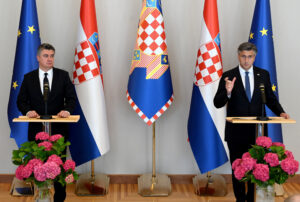
Milanović had announced the dissolution of Parliament on March 15 after PM Plenković opened a government crisis. Calling for early polls, the President of the Republic in office since 2020 and former premier between 2011 and 2016 surprised voters by announcing his candidacy for Prime Minister as head of the Croatian Social Democrats. It is precisely the Social Democratic Party of Croatia (SDP) that is the largest partner of the center-left coalition ‘Rivers of Justice,’ which currently controls 20 seats (out of 151) in the Sabor and will try to pinch the majority to government formation for the HDZ conservatives. However, after three days, the Constitutional Court declared Milanović’s candidacy as unconstitutional unless he first resigns from the post he currently holds: a decision branded “illiterate” by the President of the Republic, who has continued to tour the country in recent weeks to campaign for the SDP and the center-left coalition.
The political scenario in Croatia
At the moment, election polls on the eve give Plenković’s conservative party still first — but without a sure majority in Parliament — followed in second place by the Social Democrats, who made significant gains but with the unknown of the response of traditional center-left voters to Milanović’s candidacy. Although the incumbent President is currently the most popular political figure in Croatia, his ambiguous rhetoric toward Russia and the war in Ukraine, as well as that on his relationship with the leader of Republika Srpska (the Serb-majority entity in Bosnia and Herzegovina), Milorad Dodik, and with the Hungarian prime minister, Viktor Orbán, could create a few disagreements in the progressive constituency and a choice toward parties such as Možemo’s Green Left. However, the center-left and progressive parties could decide to converge in a Milanović cabinet to wrest the government from the HDZ after eight years. In Croatia’s super-election year, the vote for the President will take place in December, after the European elections on June 9 and the first test of parliamentarians on Wednesday.
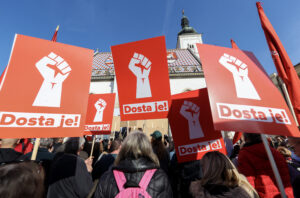
Protests in Croatia aganist the Plenković government (credits: Damir Sencar / Afp)
The decision to bring forward the legislative elections was made after weeks of protests in the country’s major cities. In addition to mounting pressure from individual professional groups over dissatisfaction with the policies of the Zagreb executive – from teachers to judges and doctors over salaries to journalists against changes to the Criminal Code to make it a crime to publish leaks – it was the center and leftist parties that catalyzed the desire to “defend democracy.” In particular, the protests concerned the appointment of Ivan Turudić as prosecutor general with the green light from Croatian deputies (the swearing-in took place on March 13) due to his proximity to the Hdz and Plenković’s possible protection from corruption cases should he lose his immunity after the next election round. The united oppositions had excluded right-wing parties such as the Euroskeptic conservatives of Most and the nationalists of the Patriotic Movement from the united front since their criticism of the outgoing government is about not being tough enough on migration policies.
Find more insights on the Balkan region in the BarBalkans newsletter hosted by Eunews
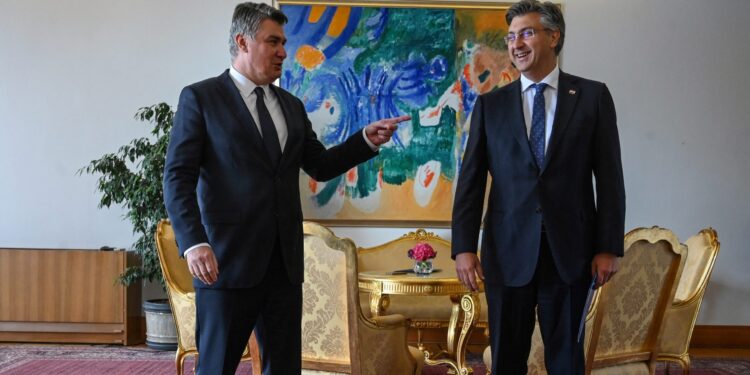
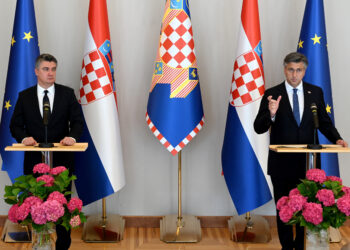
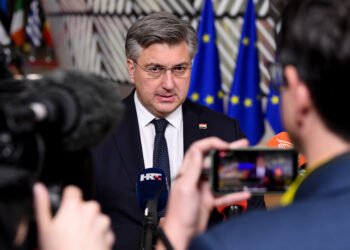
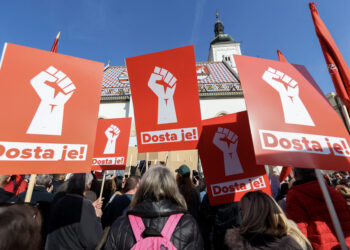




![[foto: European Institute for Gender Equality]](https://www.eunews.it/wp-content/uploads/2021/03/gender-pay-gap.jpg)
